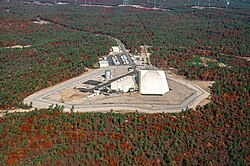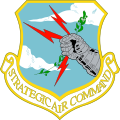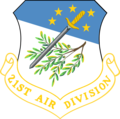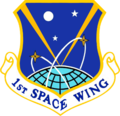| Cape Cod Space Force Station | |
|---|---|
| Part of Joint Base Cape Cod | |
| Near Sagamore, Massachusetts in the United States | |
 Aerial view of Cape Cod Space Force Station during the mid-1980s | |
 Emblem of Space Base Delta 2 | |
| Site information | |
| Type | US Space Force Station |
| Owner | Department of Defense |
| Operator | United States Space Force |
| Controlled by | Space Operations Command |
| Condition | Operational |
| Radar type | AN/FPS-123 PAVE PAWS (Phased Array Warning System) |
| Location | |
| Coordinates | 41°45′12″N70°32′19″W / 41.7532°N 70.5385°W |
| Site history | |
| Built | 1976–1980 |
| In use | 1980–present |
| Garrison information | |
| Garrison | Space Base Delta 2 |
| Occupants | 6th Space Warning Squadron |
Cape Cod Space Force Station is a United States Space Force station located in the northwest corner of Joint Base Cape Cod, United States, on Flatrock Hill in Bourne, Massachusetts. Cape Cod Space Force Station began construction in 1976 as Cape Cod Missile Early Warning Station and was renamed Cape Cod Air Force Station in 1982, before assuming its current name in 2021.
Contents
- History
- Units
- 6th Space Warning Squadron
- Base assignment and major units
- Gallery
- See also
- References
- External links
Missile warning and space surveillance operations are conducted by Space Delta 4's 6th Space Warning Squadron while base administration is the responsibility of Buckley Garrison.






















